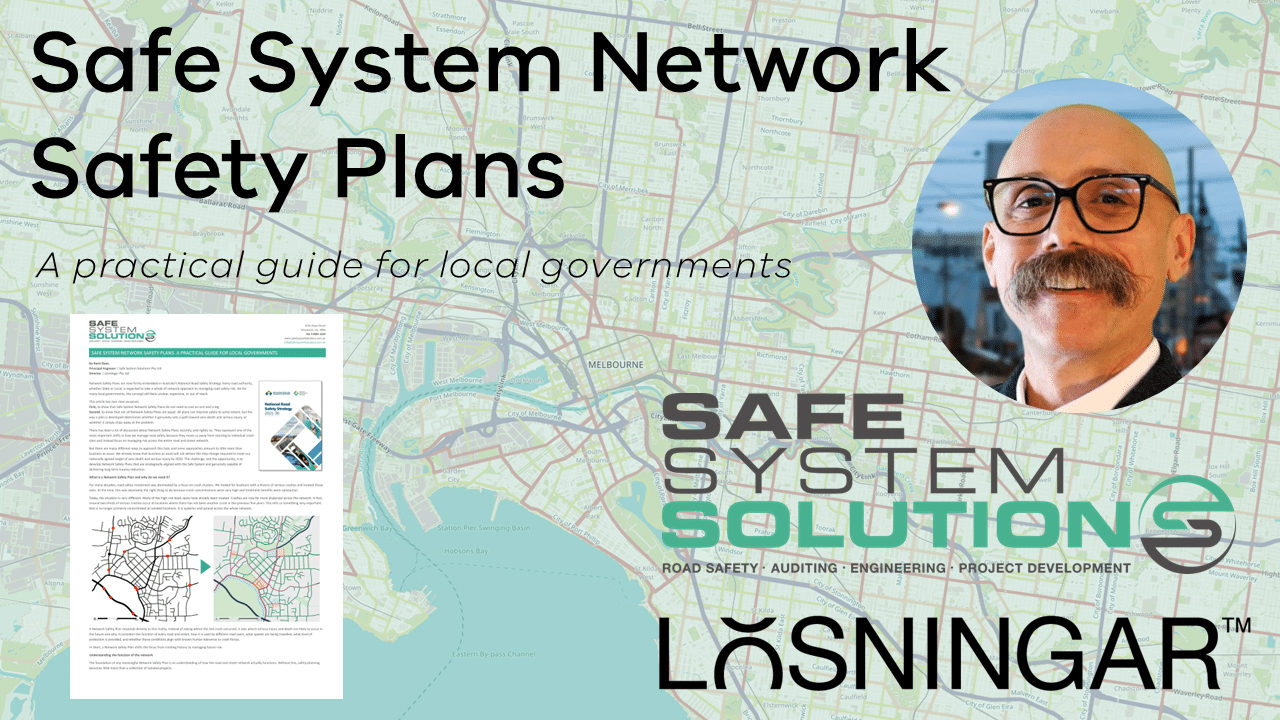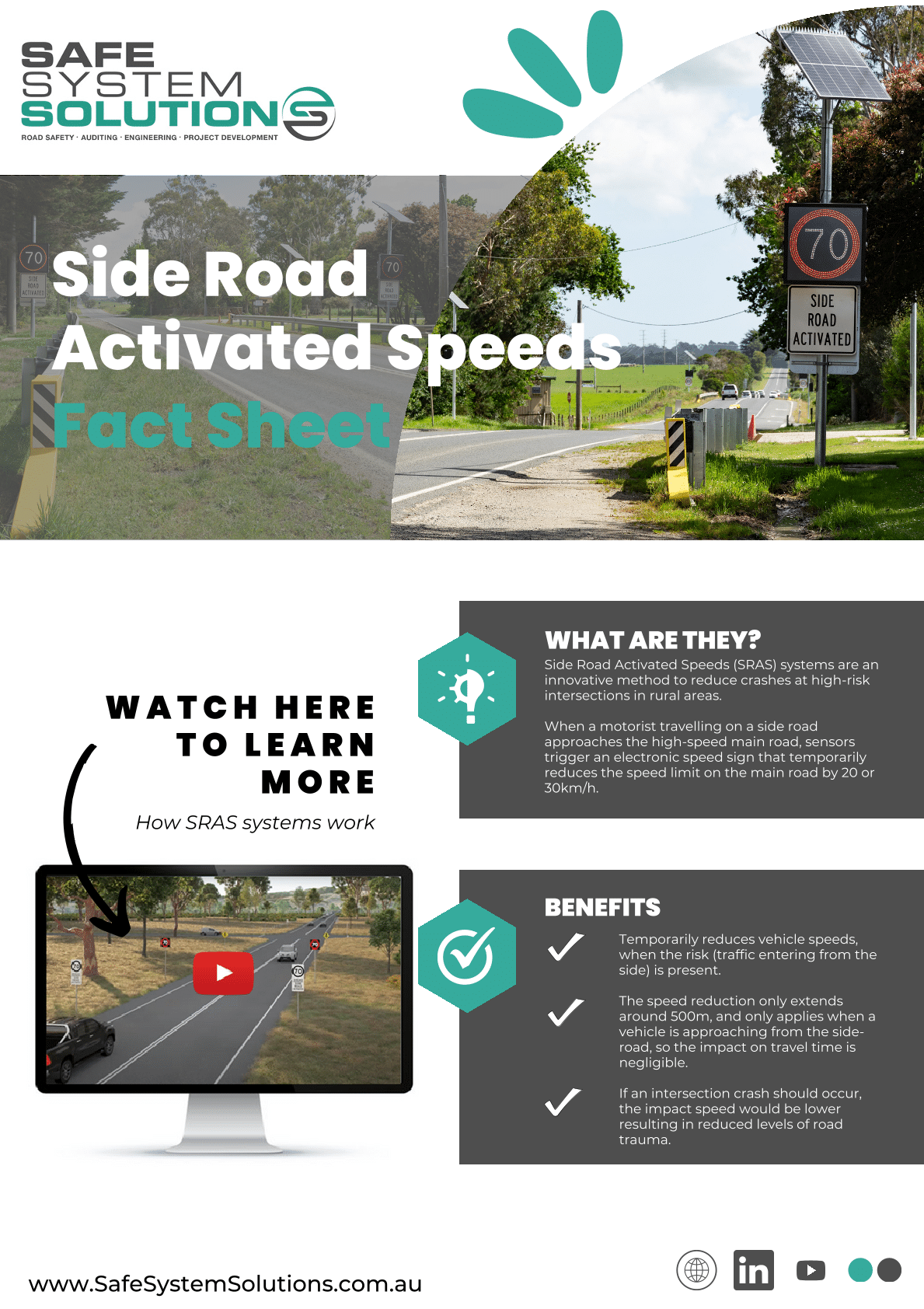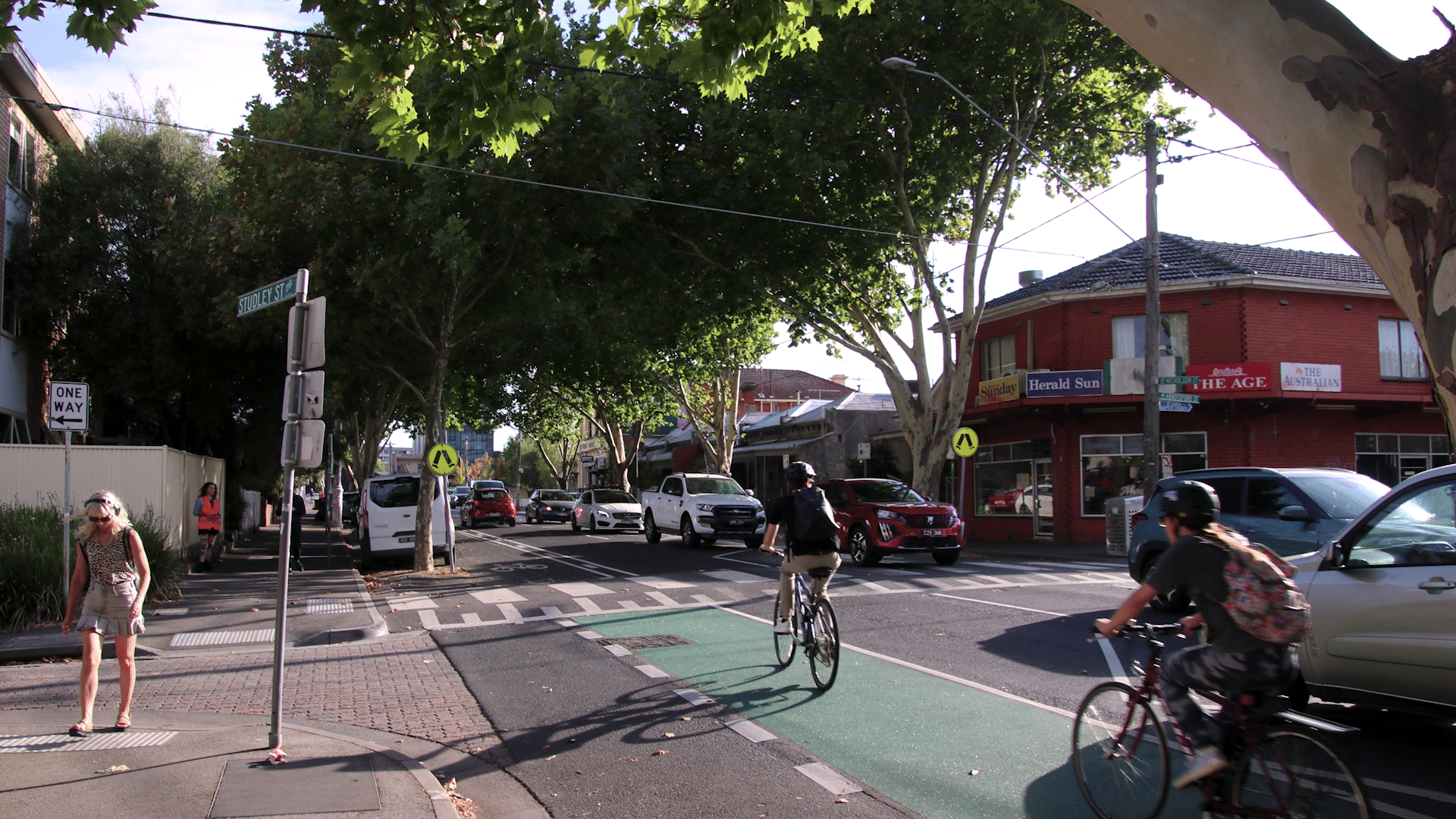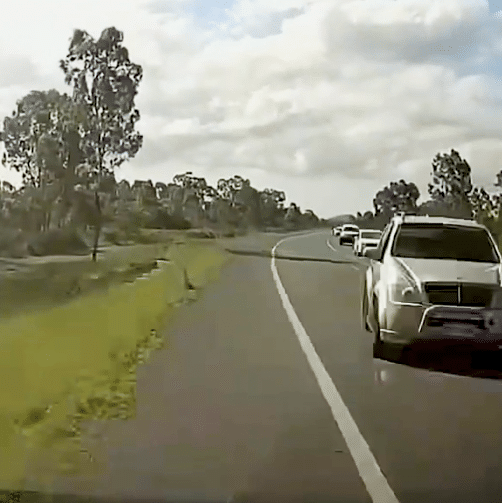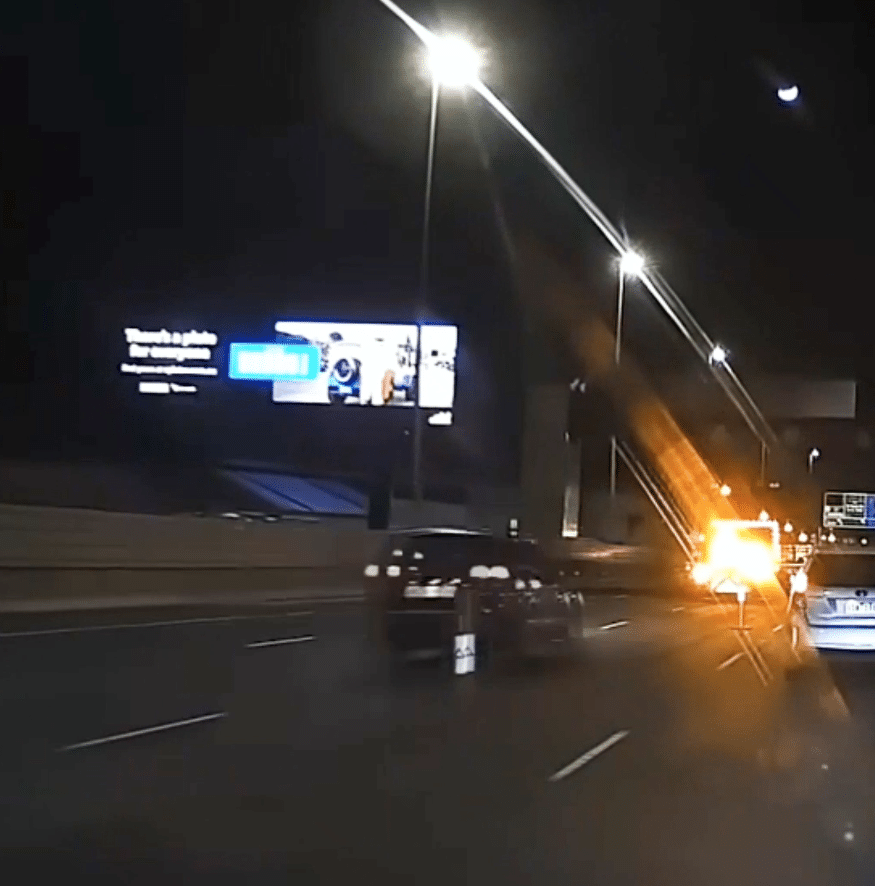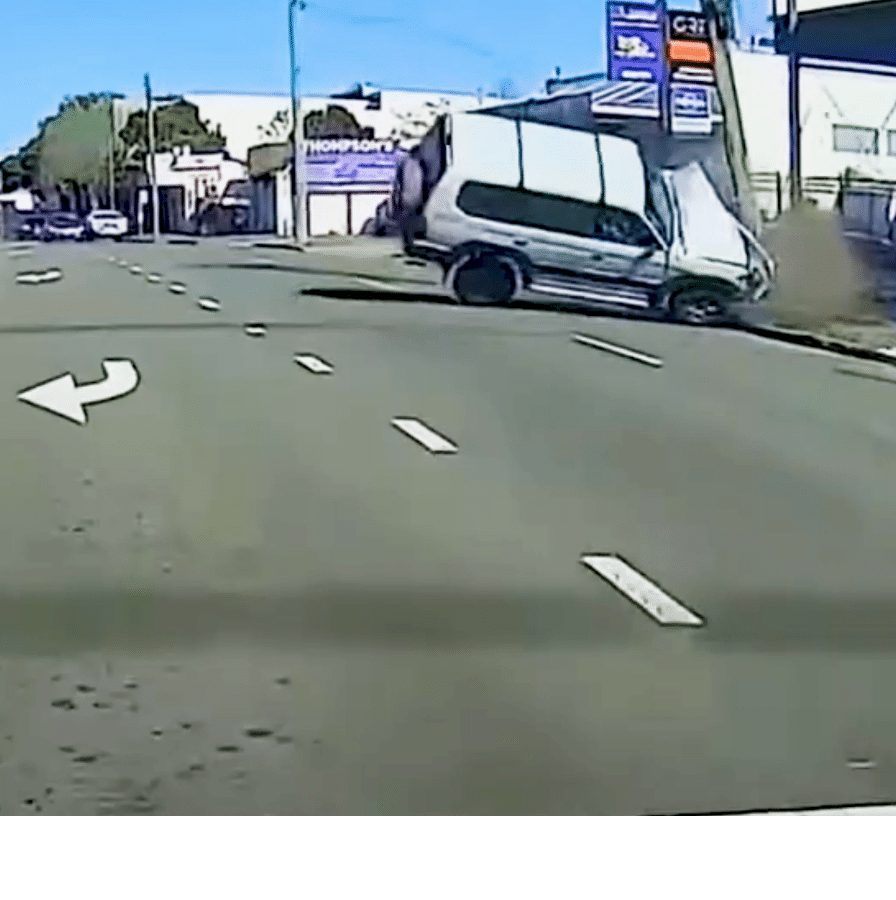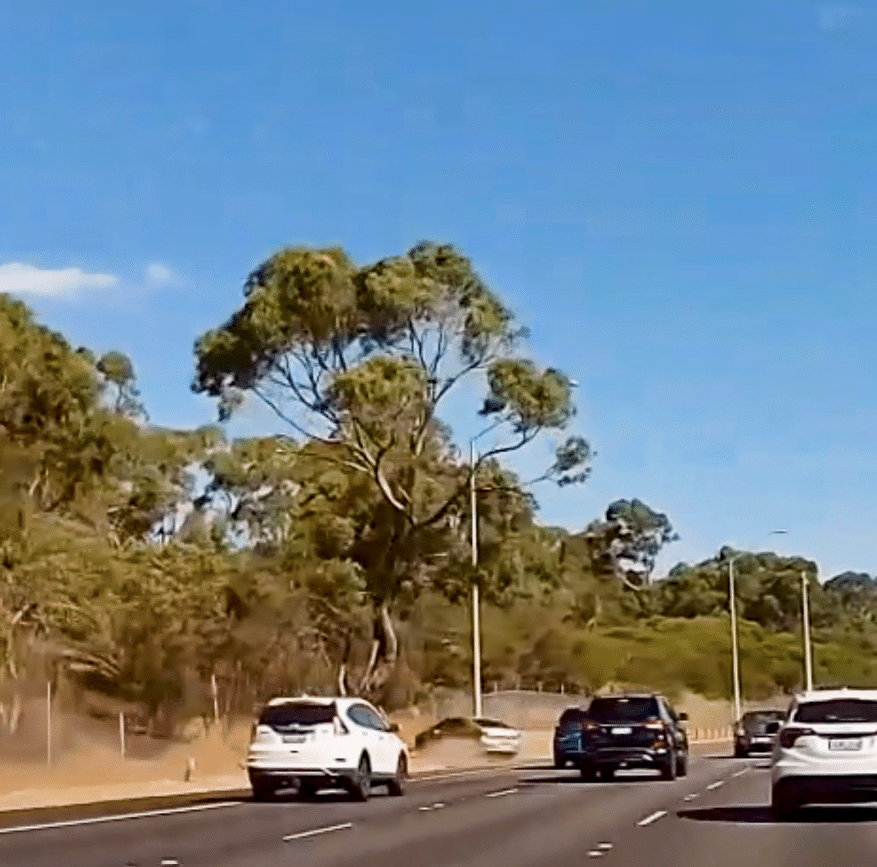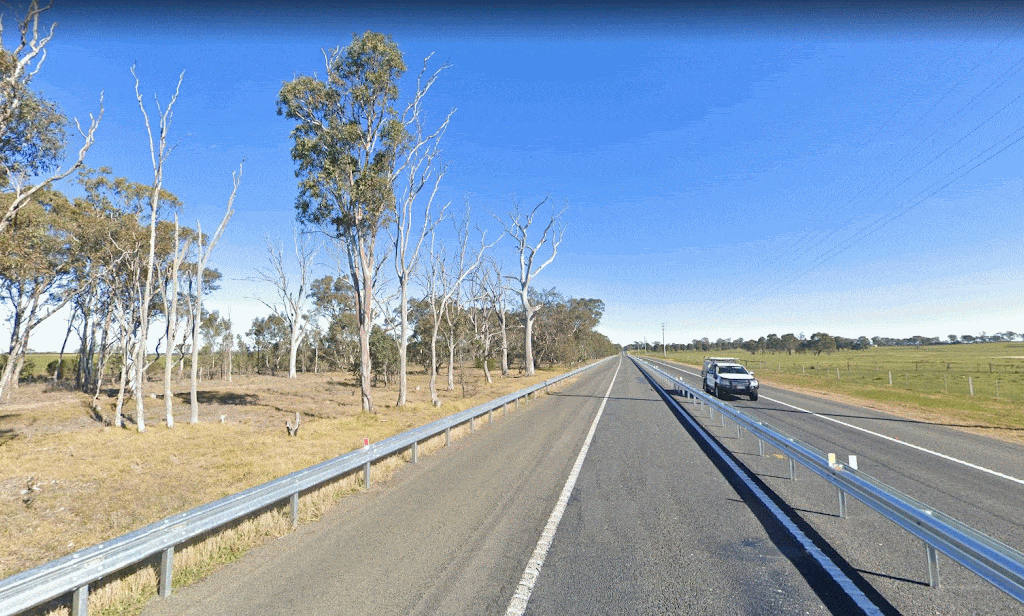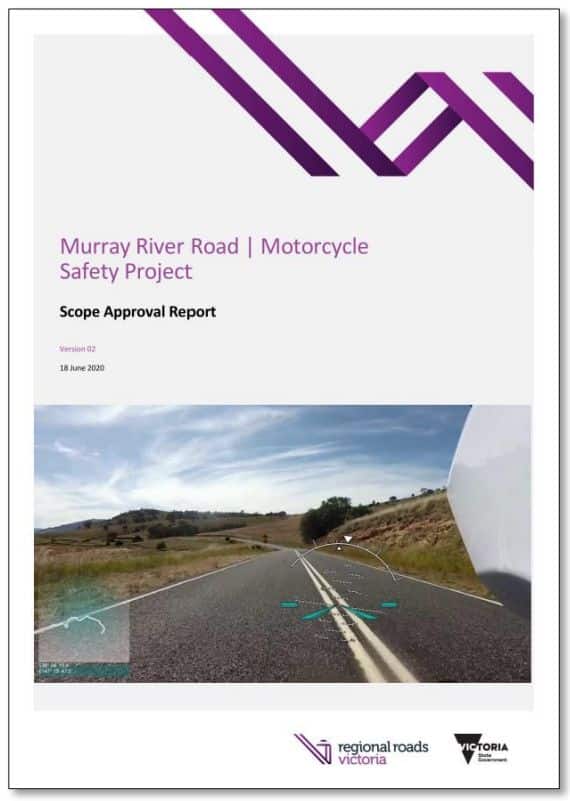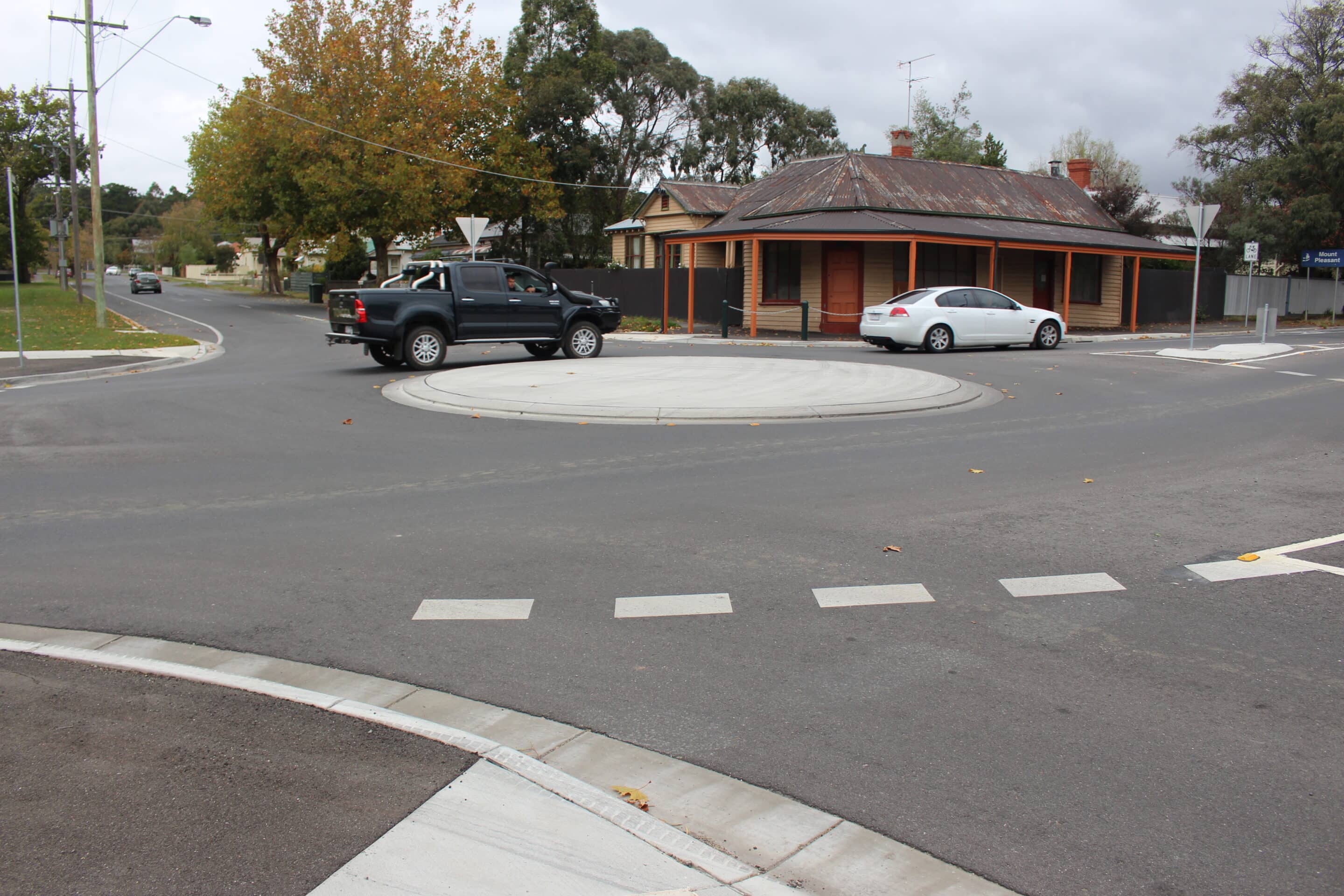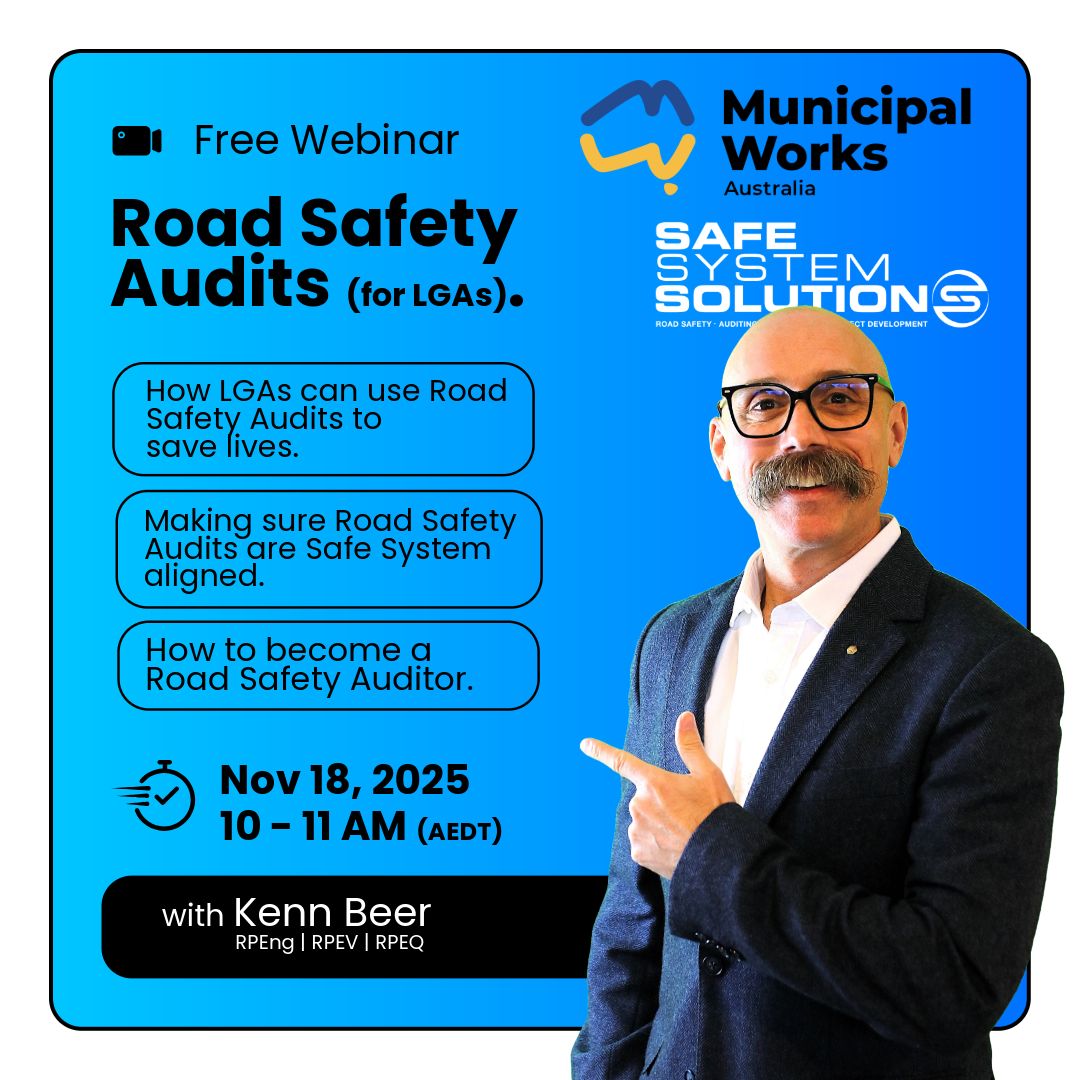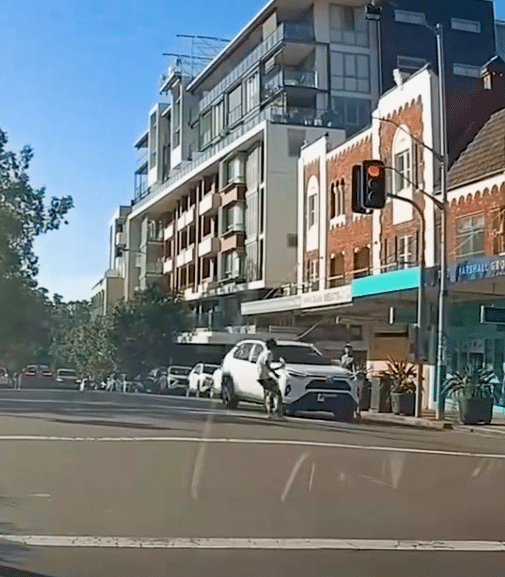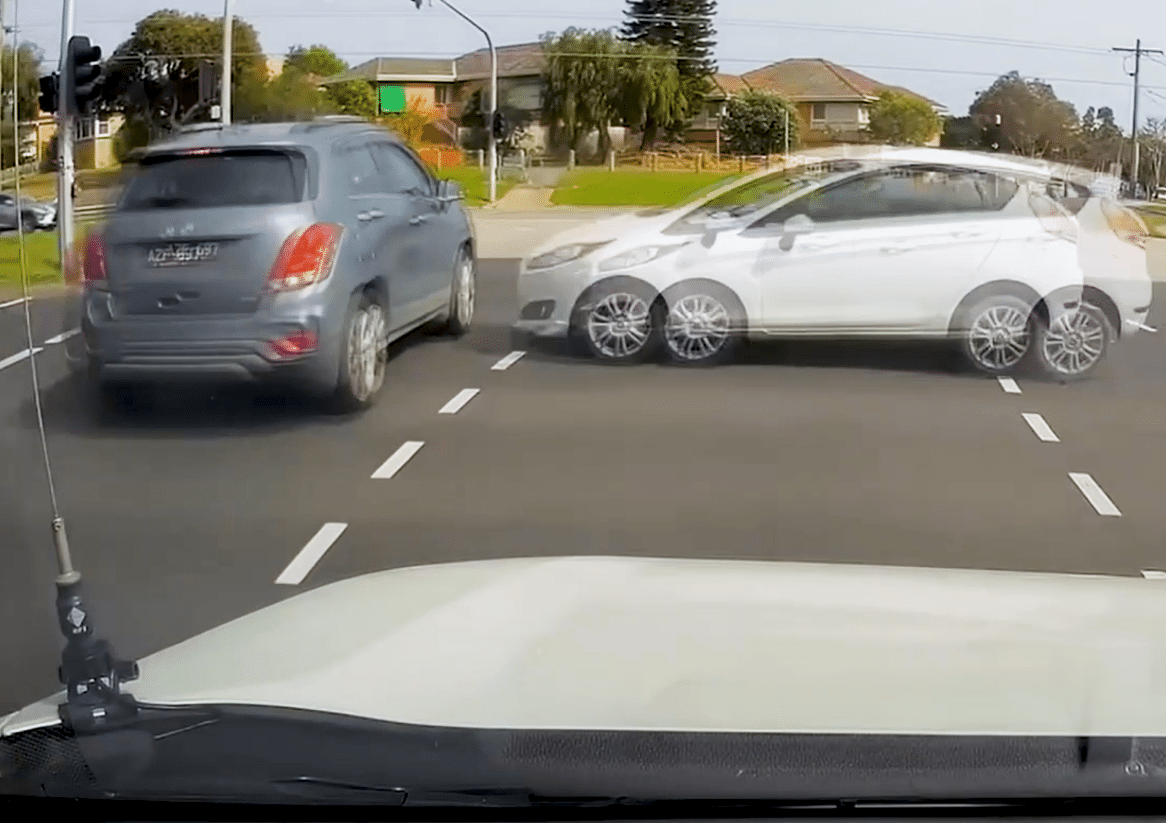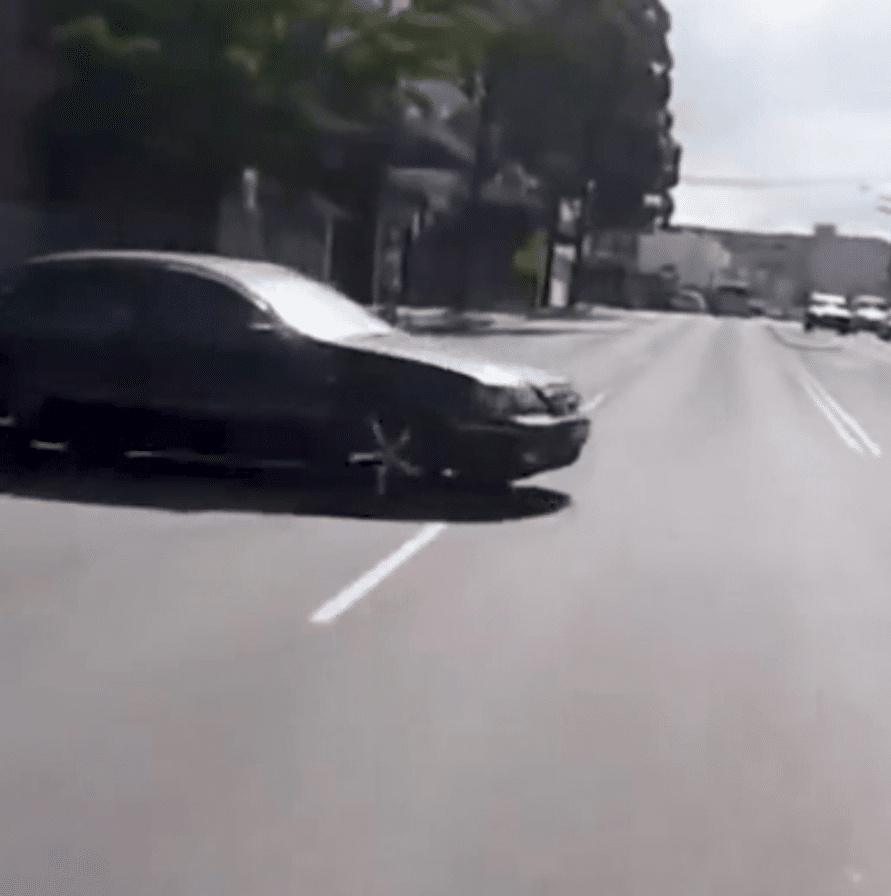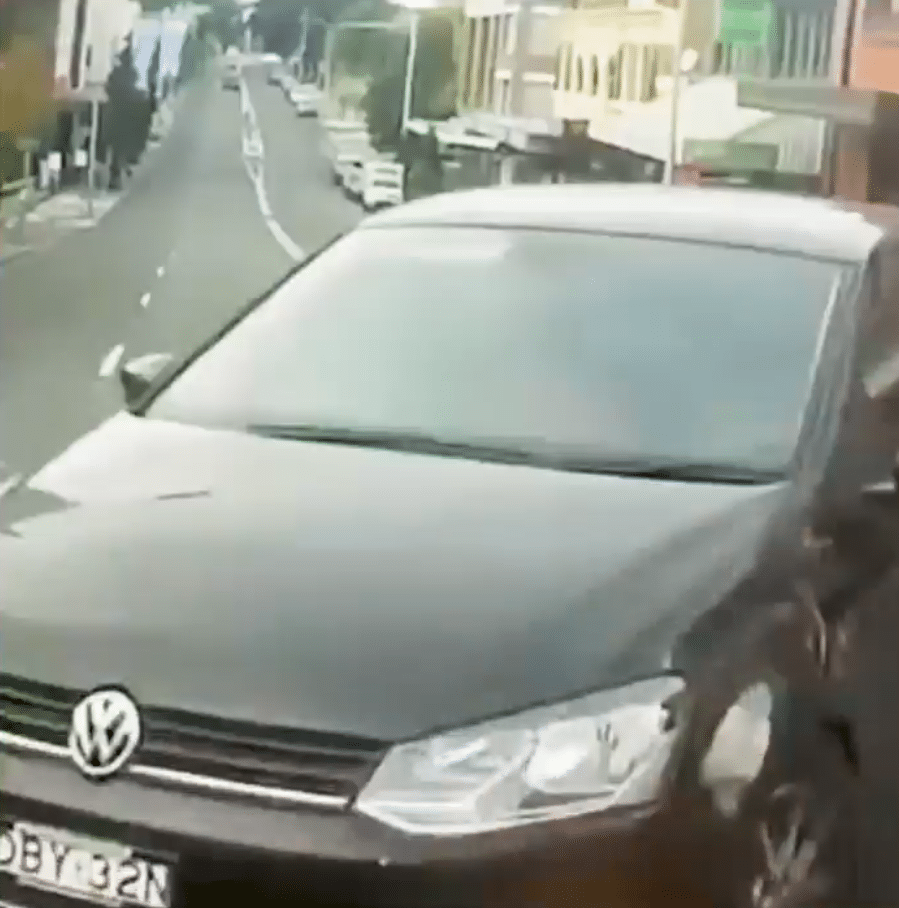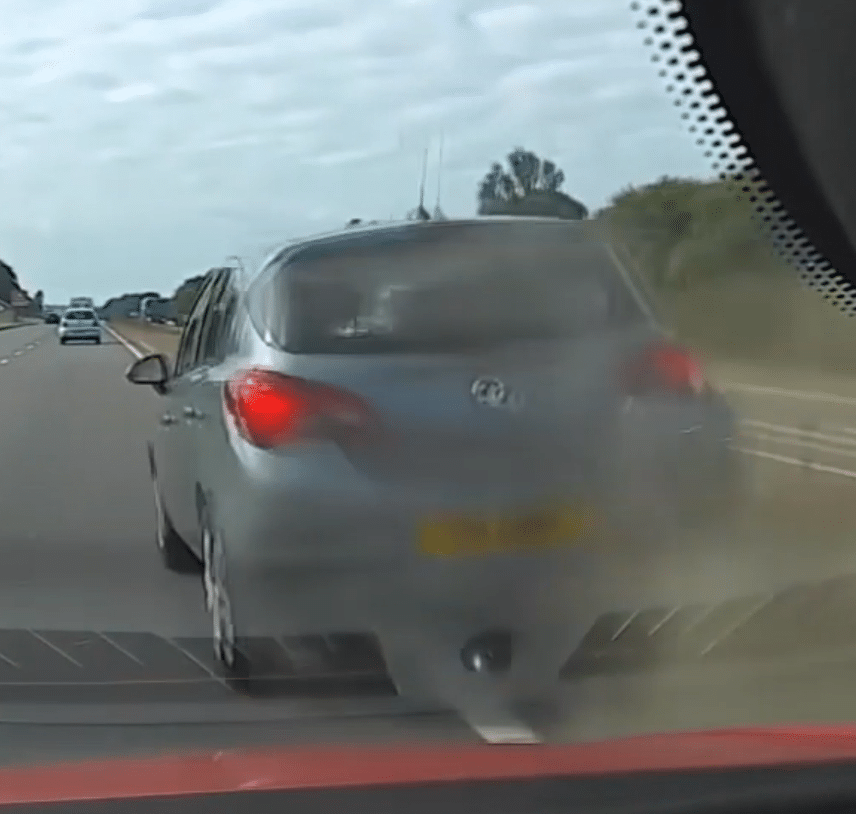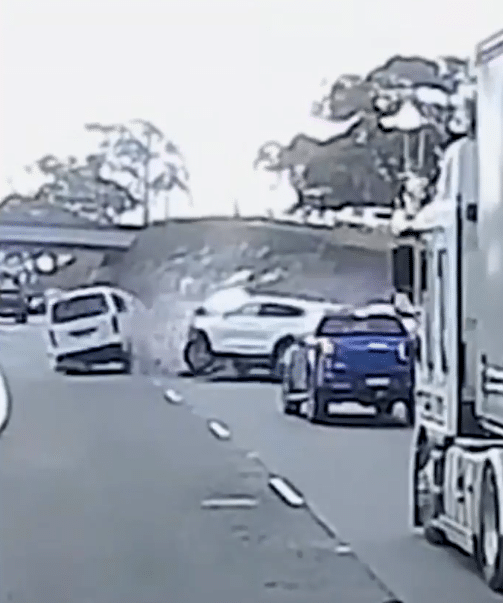Latest News
Safe System Snippet 515: Dwell on Red
Dwell on Red [also called Rest on Red] is a traffic signal phasing that puts pedestrian safety first. All vehicle approaches sit on red and only switch to green when a vehicle is detected and that vehicle has slowed. It is recommended in central activity areas and can...
Safe System Network Safety Plans. A practical guide for local governments
by Kenn Beer Principal Engineer | Safe System Solutions Pty Ltd Director | Lösningar Pty Ltd Safe System Network Safety Plans. A practical guide for local governments Network Safety Plans are now firmly embedded in Australia’s National Road Safety Strategy. Every road...
Side Road Activated Speeds
Side Road Activated Speeds [also known as RIAWS, RJAWS and STARS] are one of the more promising tools we have for tackling high risk rural and regional intersections. The concept is simple. Slow the major road when a vehicle is detected on the side road and bring...
𝗦𝗮𝗳𝗲 𝗦𝘆𝘀𝘁𝗲𝗺 (𝗽𝗿𝗼𝗷𝗲𝗰𝘁) 𝗦𝗽𝗼𝘁𝗹𝗶𝗴𝗵𝘁: Yarra City Council Raised Crossings
Raised crossings are a proven Safe System treatment. The real question is how to squeeze the absolute most value from them? What shapes driver compliance at these sites? What can we adjust when the yield rates are not where they should be? We were engaged to...
Safe System Snippet 514: Wide centrelines work… but only up to a point.
They’re a Supporting Treatment in our Safe System toolkit, helping lower the likelihood of head-on crashes. They don’t stop vehicles once they’ve crossed. For real separation, you need a median barrier. That's the Primary Treatment. ————– Follow Safe System Solutions...
Safe System Snippet 513: Working on the road can be high risk
Did you catch the Municipal Works Australia x Safe System Solutions Pty Ltd webinar on Temporary Traffic Management? Check out the recording here: Thanks to Thuan Nguyen, Traffic Lead here at Safe System Solutions, for running this webinar with Peter Ali (PhD) and...
Safe System Snippet 512: Did you know that Victoria applies two NRRIT categories – Urban and Rural?
Within each category, there are Network Roadside Risk Intervention Threshold (NRRIT) scores for Normal Design Domain, Extended Design Domain, and Design Exception conditions. These scores set the maximum level of risk a project should accept for untreated roadside...
Safe System Snippet 511: Slip Based Poles
Looks dramatic, but this is success - not failure. Slip based pole in action. Safe System in action. Want technical training on lane departure hazard management? Check out our Road Safety Barriers technical training course Next in-person course starts 26 November in...
Safe System Snippet 510: Which cross-section would you choose?
2 Star safety road infrastructure (International Road Assessment Program) vs a 5 Star (midblock). Continuous barriers comprehensively proven to save lives and prevent serious injury. ————– Follow Safe System Solutions Pty Ltd for more Safe System Snippets
𝗦𝗮𝗳𝗲 𝗦𝘆𝘀𝘁𝗲𝗺 (project) 𝗦𝗽𝗼𝘁𝗹𝗶𝗴𝗵𝘁: Motorcycle Safety Audits – North East Victoria
$3M+ for motorcycle safety infrastructure. The Safe System Solutions team was engaged by the Victorian Government to undertake motorcycle safety audits and develop an infrastructure improvement plan for key sections of the regional road network. Three route-based...
Reduce. Redesign. Re-roundabout.
Compact roundabouts achieve strong Safe System outcomes within constrained footprints, reducing cost, land, and service impacts.
Free Road Safety Audit Webinar
Our Principal Engineer, Kenn Beer, will be presenting at the next Municipal Works Australia webinar. This session will give LGAs practical insights into how Road Safety Audits can improve safety outcomes in their communities. Kenn will cover: What is a Road Safety...
Safe System Snippet 509: What do you think are contributing factors to this near miss?
Keeping speeds low in urban areas is critical not only for reducing the likelihood of a crash occurring, but also for lessening the severity of those crashes that do happen. Even small reductions in average travel speed lead to disproportionately large reductions in...
Safe System Snippet 508: The Simple Philosophy of the Safe System
To err is human, to forgive is a Safe System. We're all about taking the Safe System from a philosophy and making it real. ————– Follow Safe System Solutions Pty Ltd for more Safe System Snippets
Safe System Snippet 507: Vehicle to Vehicle Risk at Signals
Two major challenges with vehicle-to-vehicle crashes at traffic signals are impact speed and impact angle. Reducing the likelihood of crashes is always important, but it is not our only role. Signalised intersections rely on perfect human behaviour. People will...
Safe System Snippet 506: Looked but failed to see: What Road Safety Auditors and Safe System Assessors should consider
A contributing factor in motorcycle crashes at intersections can be inattentional blindness. Drivers may look, but the approaching motorcycle simply doesn’t register. As auditors and assessors, it’s worth asking: ➡️ Are approach speeds too high for safe...
Safe System Snippet 505: Motorcycles & Intersection Collisions
One of the most common crash types leading to motorcycle injuries in urban areas is the right turn against crash, when a driver turns in front of a motorcyclist who is travelling straight. This crash type also happens between cars, and between cars and cyclists, but...
Safe System Snippet 504: We 🩷 Central Barriers
A poem for road safety: Central barrier, you legend. Saving lives without fuss. You are a class act. #BarriersSaveLives ————– Follow Safe System Solutions Pty Ltd for more Safe System Snippets
Safe System Snippet 503: Raised Medians – no substitute for a barrier system
Raised medians are valuable, but they’re no substitute for a barrier system. In a Safe System Assessment, count raised medians as reducing likelihood of crashes, not severity. For severity reduction, think barrier or speed reduction. ————– Follow Safe System...
Safe System Snippet 502: The ‘Airborne,’ ‘Ditch’ & ‘Rough Road’ Test
Volvo has developed three run-off-road crash test scenarios. These are the ‘Airborne’ test, ‘Ditch’ test and the ‘Rough road’ test. The ‘Airborne’ test involves the vehicle leaving the road at 80km/h, launching and having a hard impact on the wheels. The ‘Ditch’ test...

